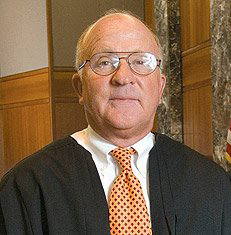The Chron makes its recommendations for the Court of Criminal Appeals.
Judge, Court of Criminal Appeals, Place 2: Lawrence “Larry” Meyers
Accusing someone of having “the feels” seems more at home in a teenager’s Facebook argument than in a dissenting opinion from the Court of Criminal Appeals, but that’s what Judge Lawrence “Larry” Meyers wrote in State v. Furr, alleging that his colleagues cared more about their feelings on the case than the objective standards of law. After 24 years on this bench, the long-serving member of Texas’ highest criminal court has certainly given up on the usual collegiality.
“We’re not there to get along,” Meyers, 68, said during a meeting with the Chronicle editorial board. “We’re there to do the right thing under the law.”
Judge, Court of Criminal Appeals, Place 5: Scott Walker
Consider this race as evidence against electing judges.
Democrats are offering a candidate who was removed from the Bexar County appointed attorney list after she refused to represent defendants who wouldn’t plead guilty – Betsy Johnson.
Republicans are running a Dallas-area defense attorney with a politically famous name and no record of public service – Scott Walker.
We were ready to toss this one up or take a look at third-party candidates, but in his meeting with the Chronicle editorial board, Walker demonstrated a workman’s experience in the criminal court trenches that earned our endorsement.
Judge, Court of Criminal Appeals, Place 6: Robert Burns
It doesn’t take a deep look at the Texas judiciary to see that the prosecutor’s office is often the first step towards earning a bench. The relationship between district attorneys, police and judges is a tight one, and years of wearing the black robes can give even the most dedicated neutral arbiter an unconscious tunnel vision that undermines fairness in our criminal justice system.
Robert Burns, who was first elected to a Dallas County criminal district court in 2006, understands that problem well.
“Too many judges want to side with the state or the police and not be fair and impartial,” Burns, 52, told the Houston Chronicle editorial board. “Just call it right down the middle. Be fair, and when you do make procedural decisions, make sure they’re decisions that result in guilty people getting convicted and innocent people being set free.”
Meyers is the only statewide Democrat in office, having switched parties in 2013 to mount an unsuccessful campaign for Supreme Court. I still don’t know what to make of the guy – he’s good on some things and not on others, and while he’s given a standard “the party left me” rationale for switching from R to D, I can’t say I’ve seen any clear evolution in his judicial opinions. Burns is a Democratic challenger to another longtime incumbent, Mike Keasler, who will have to resign his position in four years if he is re-elected because he will hit the mandatory retirement age of 75. He’s the clearest choice of the three.


The Chronicle seems to have completely missed the absurdity of what Burns said. Procedural questions on a criminal appeals court are about whether or not a person got a fair trial, not whether they are guilty or innocent. If a defendant is proved guilty, but only with illegally obtained evidence, for example, the conviction should be overturned even if he is, in fact, guilty. Otherwise, why have constitutional protections for defendants?
We were speaking in the context of post conviction proceedings. The quote lacks context; Mr. General Grant, you are otherwise 100% correct.